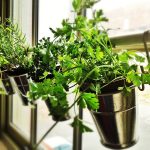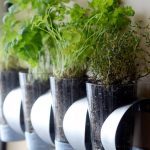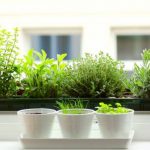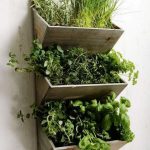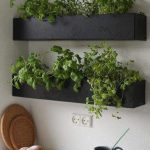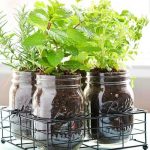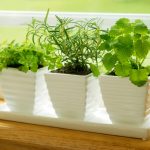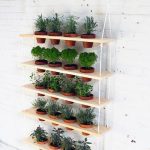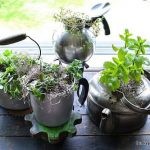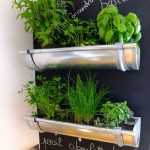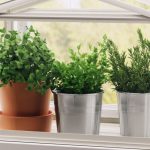As an Amazon Associate I earn from qualifying purchases.
Growing herbs indoors can be a rewarding and fulfilling experience for any gardening enthusiast. Not only does it bring a touch of greenery and freshness into your home, but it also allows you to have access to fresh herbs any time you need them for cooking or baking. However, growing herbs indoors does require a little bit of effort and know-how to ensure that they thrive and flourish. If you’re looking to start your own indoor herb garden, here are some tips to help you get started:
1. Choose the right herbs: Not all herbs are suited for indoor growing. Some herbs thrive in the warm, sunny conditions of outdoors and may struggle to grow indoors. The best herbs for growing indoors are ones that can tolerate lower light levels and have a compact growth habit. Some popular choices include basil, parsley, cilantro, mint, and thyme.
2. Provide adequate light: Herbs need plenty of light to grow and flourish. Ideally, place your indoor herb garden in a location that receives at least 6-8 hours of sunlight per day. If natural light is limited, you can supplement with artificial grow lights to ensure your herbs get the light they need.
3. Choose the right containers: When it comes to growing herbs indoors, the right container is crucial. Make sure your pots have drainage holes to prevent waterlogging, as herbs do not like to sit in wet soil. Choose pots that are slightly larger than the root ball of the herb you are planting to give them room to grow.
4. Use well-draining soil: Herbs prefer well-draining soil that is rich in organic matter. Use a high-quality potting mix specifically formulated for herbs, or make your own by mixing equal parts of peat moss, perlite, and vermiculite.
5. Water regularly: Herbs like to be kept evenly moist, but not waterlogged. Water your herbs when the top inch of soil feels dry to the touch, and make sure excess water can drain freely from the pot. Avoid overwatering, as this can lead to root rot and other problems.
6. Fertilize sparingly: Herbs don’t require a lot of fertilizers to thrive. In fact, too much fertilizer can actually harm them. Use a balanced, water-soluble fertilizer diluted to half strength every 4-6 weeks during the growing season to provide your herbs with the nutrients they need.
7. Prune regularly: Regular pruning is essential for keeping your indoor herb garden healthy and productive. Pinch off any flowers that appear to encourage more leaf growth, and trim back any leggy or woody stems to promote new growth.
By following these tips, you can successfully grow a thriving indoor herb garden that will provide you with fresh herbs for all your culinary creations. With a little care and attention, you can enjoy the beauty and convenience of having a mini herb garden right in your home.
Amazon and the Amazon logo are trademarks of Amazon.com, Inc, or its affiliates.
 yonohomedesign.com Garden and Interior Design Ideas
yonohomedesign.com Garden and Interior Design Ideas
